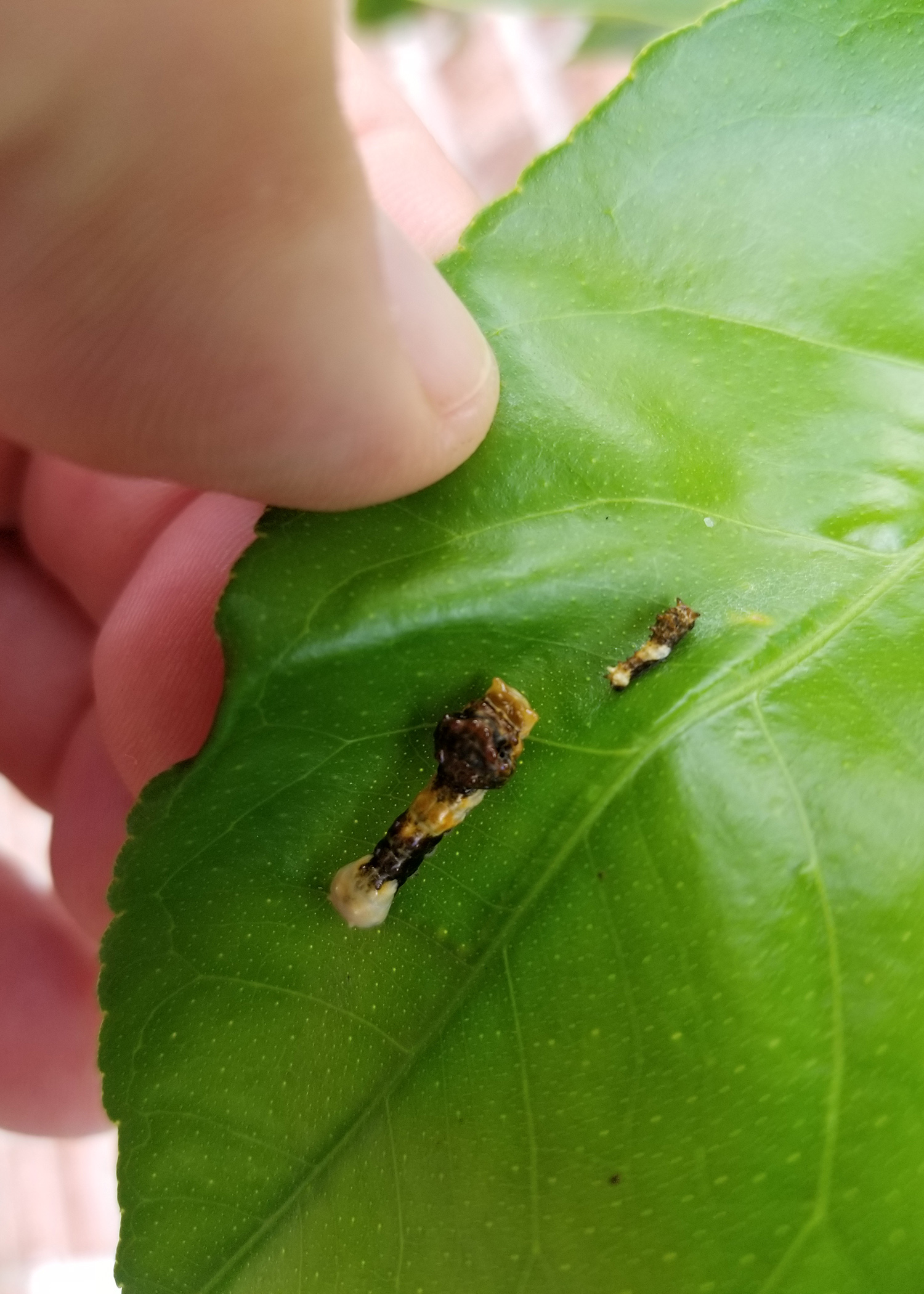
Citrus trees’ harvest makes them worth growing in state Mississippi State University Extension
Root Rot Root Rot (also known as Brown Rot or Collar Rot) is a citrus tree disease caused by the soil-inhabiting fungus, Phytophthora. Root Rot symptoms include dark brown or black patches of hardened bark on the tree trunk, mainly at the base. It is also common for ooze to seep from the affected area.
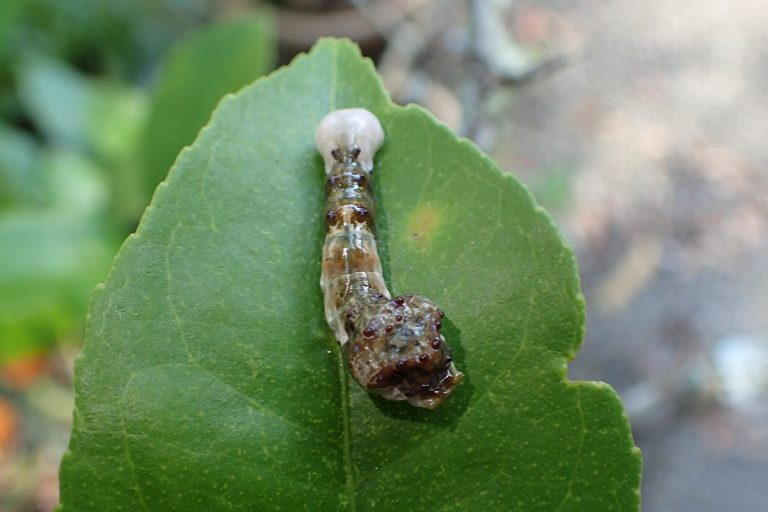
Giant swallowtail caterpillar on Meyer Lemon tree leaf. The WFSU Ecology Blog
November 4, 2022 by lemonparaiso Lemon trees are a wonderful addition to any garden or backyard, but unfortunately, they can be a tasty treat for caterpillars. These pesky insects can quickly defoliate a lemon tree, leaving it vulnerable to disease and pests.
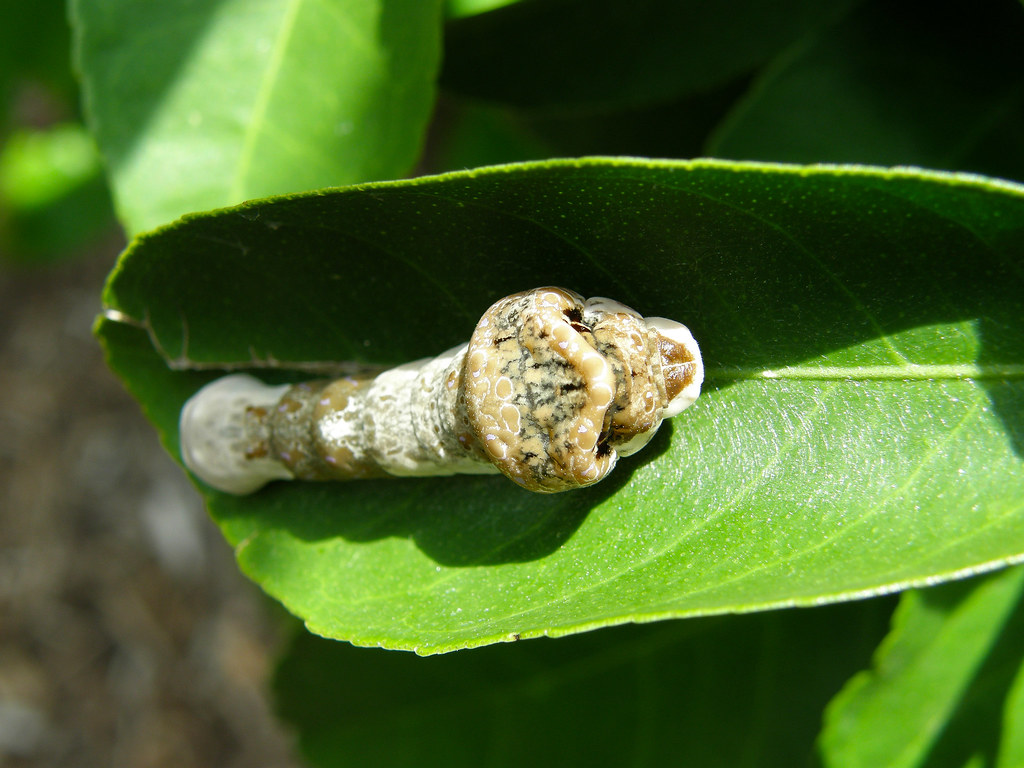
Giant Swallowtail caterpillar on lemon tree. I found a swa… Flickr
(View Caterpillar ID Key) (PDF) The California orangedog, or black anise swallowtail, is a native butterfly that feeds on both perennial anise (sweet fennel) and citrus.During its development, the caterpillar changes from a mottled brown to a whitish green and bright green with yellow and black spots on each segment. Mature larvae are about 1.5 inch (3.7 cm) long.

Large caterpillar on citrus leaf Australia Garden pests, Citrus trees, Citrus
The larval or caterpillar stage can be considered a pest due to its habit of feeding on the foliage of most Citrus species. A few orangedogs, as the larvae are commonly called, can quickly defoliate small or young plants.

Citrus Swallowtail Caterpillar What's That Bug?
A common issue with any type of plant is caterpillars. With citrus trees, in particular, Orange Dog caterpillars can come in flocks of hundreds. These slinky creatures love the citrus taste (who can blame them?) and will secrete a pungent odor to deter anyone who tries to remove them.
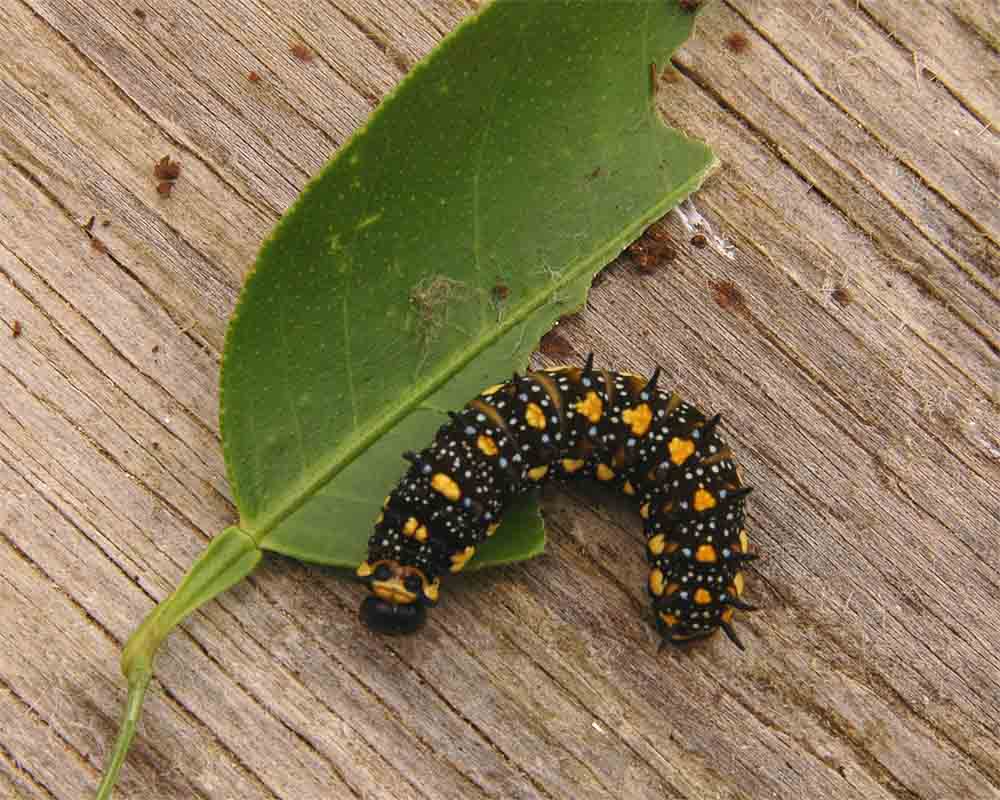
The Nature of Robertson Citrus Caterpillars two types.
Wednesday - Giant Swallowtail Caterpillar. This looks a lot like bird poop; however, it's just a camouflage tactic of the giant swallowtail caterpillar ( Papilio cresphontes ). This species is often called the "orangedog" as they feed on members of the citrus family throughout their larval stage. They can be a pest to young citrus trees.

Green and Brown Caterpillars on a Citrus Tree Stock Image Image of asia, colorful 237569857
Light brown apple moth Leaf damage Trunk and limb damage Root damage Names link to more information on identification and biology or management. Top of page Year-Round IPM Program for identifying young tree pests and their damage on Citrus, from UC IPM.
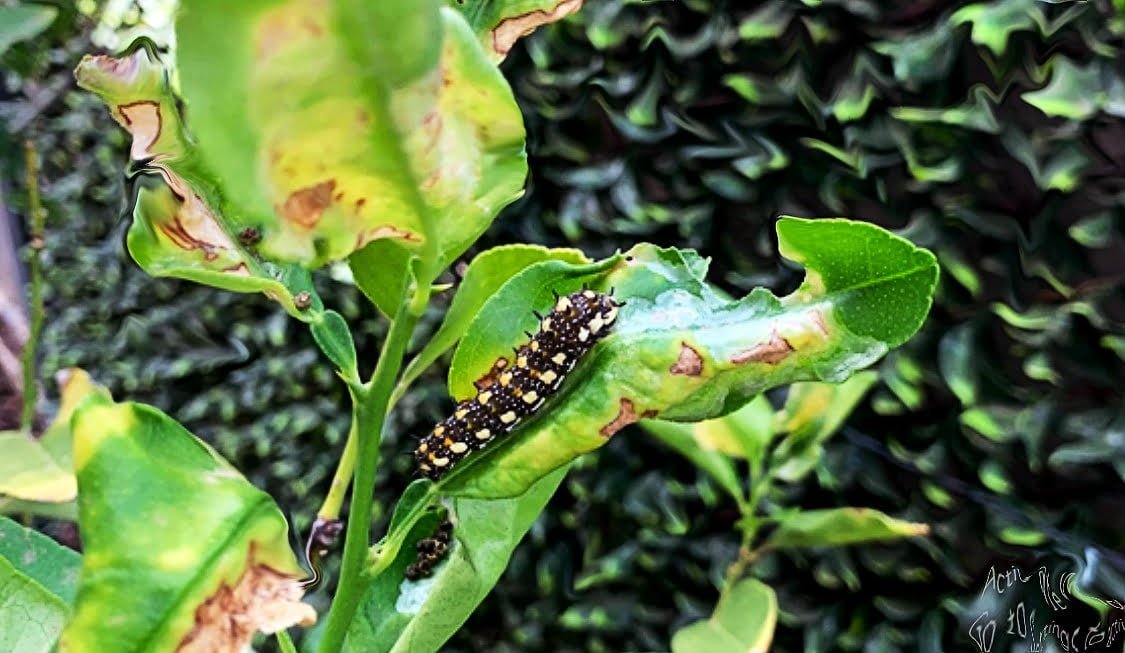
Citrus Swallowtail Caterpillar How to Damage Citrus Trees 01
The citrus swallowtail caterpillar often called the "citrus swallowtail" or "citrus orange dogs" of citrus trees, is the larva of the giant swallowtail butterfly (Papilio cresphontes cramer). This caterpillar is a big problem for the gardens of the United States and other citrus-growing countries.

How Do I Stop Caterpillars Eating my Lemon Tree? (Video) BBC Gardeners World Magazine
Found on all varieties of citrus leaves, these caterpillars begin life very small, with an irregular brown and white coloration camouflaging them to look almost exactly like a piece of bird.
What is this caterpillar that looks like bird poop? Southern California on a Citrus tree r
A caterpillar is the larval stage of a moth or butterfly. It's part of their four-stage life cycle: egg, larva, pupa, and adult. The caterpillar is the important second stage in this transformation process. Understanding how to identify various types of caterpillars allows us to anticipate their transformations.

Caterpillars on Leaves of a Citrus Tree Stock Photo Image of branch, animal 237652590
Caterpillar hosts are trees and herbs of the citrus (Rutaceae) family; also prickly ash, Zanthoxylum americanum, common rue, Ruta graveolens, and hop tree, Ptelea trifoliata. On the left you'll see a mature caterpillar (disguised as a bird dropping). The one on the right is a younger caterpillar.
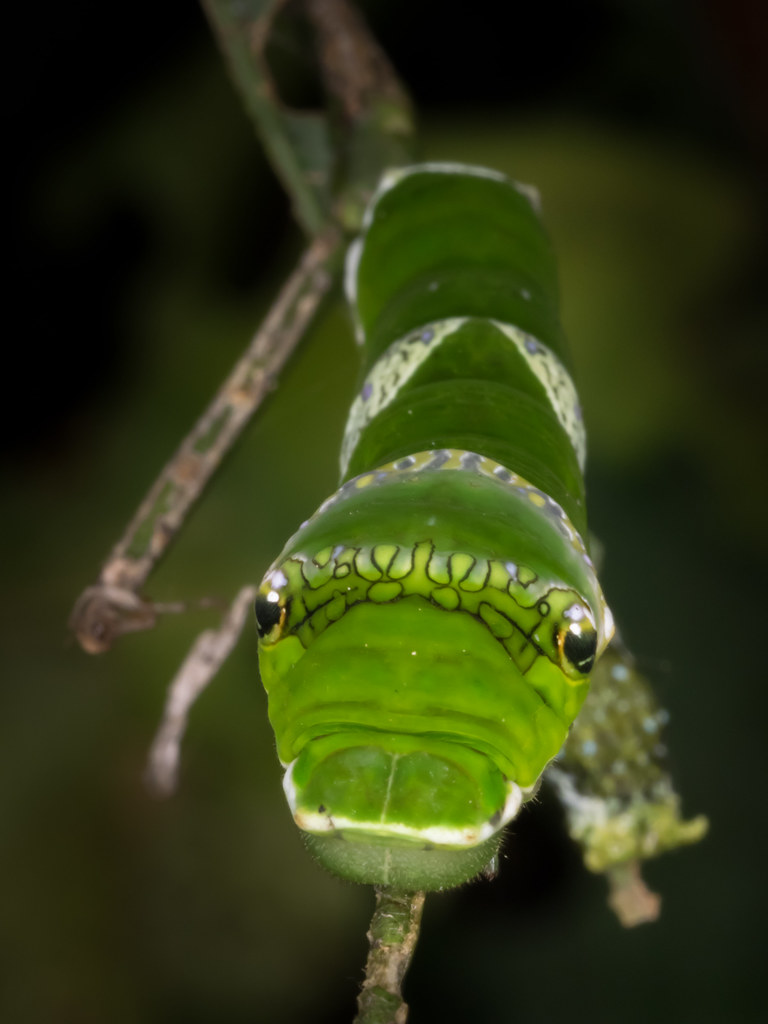
Citrus Swallowtail Caterpillar Citrus Swallowtail Caterpil… Flickr
The life cycle of caterpillars on orange trees typically follows four stages: egg, larva (caterpillar), pupa (chrysalis), and adult (butterfly or moth). The female butterfly or moth lays eggs on the leaves or fruit of the orange tree. Once the eggs hatch, the caterpillars emerge and begin feeding on the tree.

Citrus Swallowtail Caterpillar YouTube
I regularly have citrus butterfly larvae (caterpillars) on my citrus trees - especially my lime tree. There are two native butterfly species which visit: lar.

Citrus Swallowtail Caterpillar from Taiwan What's That Bug?
Butterfly Larvae Destroying my Citrus Trees #132307 . Asked June 05, 2013, 2:18 PM EDT.. Are you sure these are monarch caterpillars? Monarch butterflies usually lay eggs on milkweed plants. In fact many of us plant milkweed in our gardens just to be eaten by monarch caterpillars.

Giant Swallowtail butterfly caterpillars on a citrus tree
FIRSTLY: The DAINTY SWALLOWTAIL or Small Orchard Butterfly. You may see a small black/brown/white caterpillar on the leaves of your citrus - that look a bit like a bird dropping and about 3 cm long. IT THEN PUPATES INTO THIS GORGEOUS BUTTERFLY It's a mainly black and white beauty with a dash of red on the tips of its back wings.
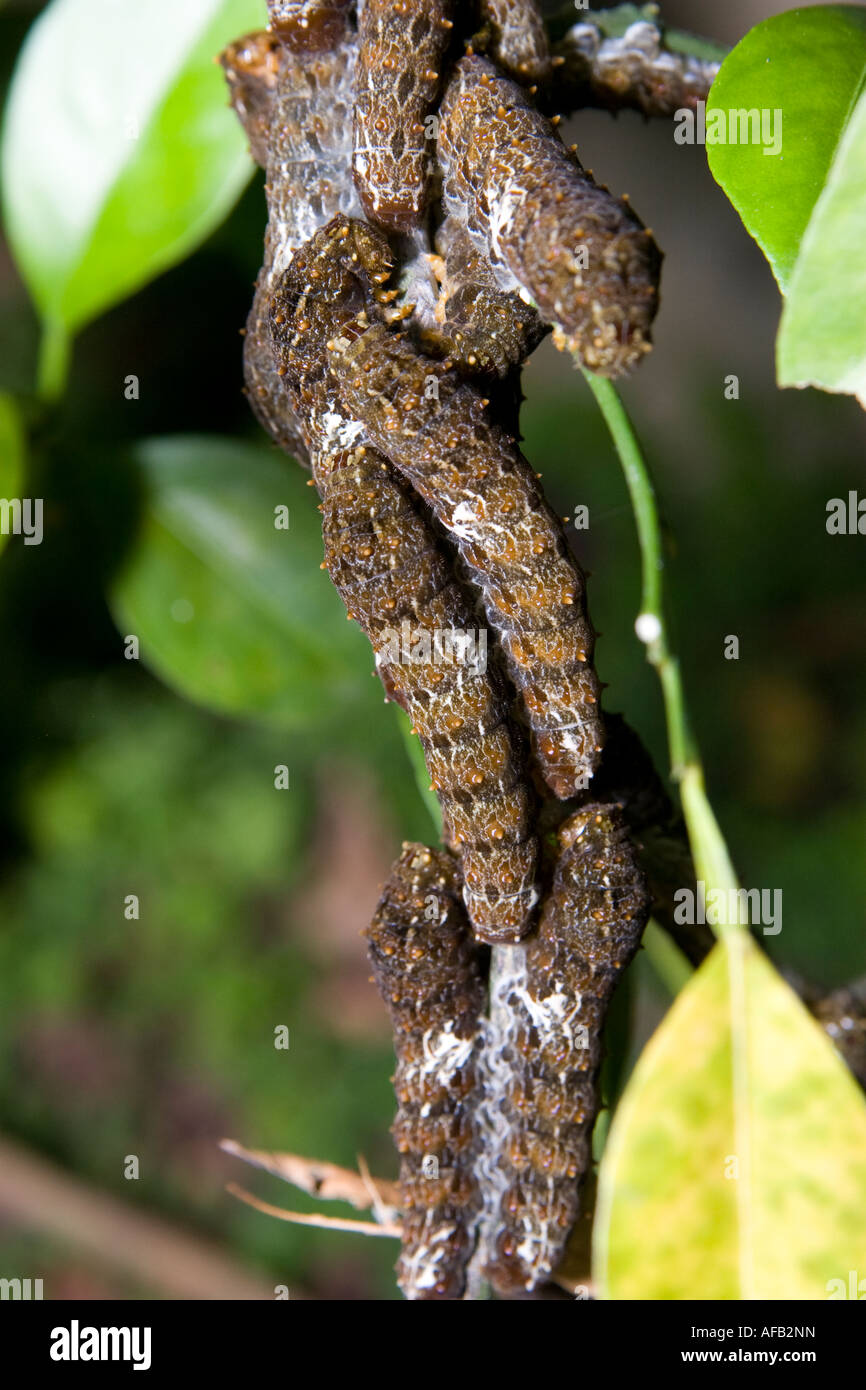
Group of Orange Dog Caterpillars on a citrus tree Stock Photo Alamy
Scale Usually on bark of young twigs and branches, encrusted with small (1/16") hard, circular, scaly raised bumps with yellow centers, may also be on fruit. Sap feeding weakens the tree. Natural Control Monterey Fruit Tree Spray Plus (Orange, Lemon, Lime) Monterey Horticultural Oil Safer® Brand Insect Killing Soap